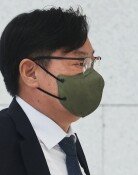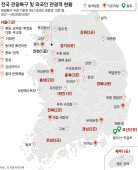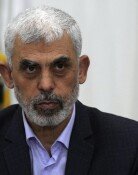Justice Ministry tries to expand prosecutors’ investigation scope
Justice Ministry tries to expand prosecutors’ investigation scope
Posted August. 01, 2023 07:53,
Updated August. 01, 2023 07:53
The Ministry of Justice released the revised bill of the Regulations on Mutual Cooperation between Prosecutors and Judicial Police Officers and General Investigation Rules (Investigation Rules), which abolishes the rule that the police are solely responsible for supplementary investigations, on Monday and made a pre-announcement of legislation. The ministry revised the presidential decree titled Regulations on Crimes Whose Investigation is Commenced by Prosecutors to expand prosecutors’ investigation scope, which was reduced to corruption and economic crimes. Such efforts to nullify higher-level laws by amending lower-level decrees and rules are under criticism.
According to the revised Criminal Procedure Act, Prosecutors' Office Act, and Act of Complete Deprivation of the Prosecution's Right to Investigate, which took effect in September last year, only the police can perform supplementary investigations for crimes for which the police have investigation right. The revised bill abolishes such a role that the police are solely responsible for supplementary investigations. Prosecutors’ continued investigation scope is limited when the investigation first begins, but they are allowed to carry out supplementary investigations without limit under the revised bill as they were able to before the revised laws.
In addition, prosecutors were previously able to request case transfer only in non-transfer cases that are considered illegal due to the violation of legal principles, the violation of the rule of collecting evidence, and judgment errors in prescription and prosecution requirements. However, under the newly revised bill, prosecutors are given transfer request right for all non-transfer cases of the police that prosecutors believe whether or not there is a suspicion of a crime is unclear. This means that the prosecution basically has a transfer request right for all cases of the police, which nullifies the police’s right to terminate investigations.
After the Act of Complete Deprivation of the Prosecution's Right to Investigate took effect, the police’s investigation volume increased beyond the existing capacity, leading to delays in investigations. Some police officers want the prosecution to carry out supplementary investigations themselves, instead of asking the police to do so, to terminate investigations. However, the fundamental solution to this problem is to enhance the investigative capacity of the police, which reached its limit after the Act of Complete Deprivation of the Prosecution's Right to Investigate was enforced, rather than removing limitations on the prosecution’s direct investigation scope.
The Ministry of Justice filed a claim on adjudicating jurisdiction disputes to the Constitutional Court, saying that the Act of Complete Deprivation of the Prosecution's Right to Investigate violates the prosecution’s investigation right, but it was dismissed. In most advanced countries, investigations involving the prosecution are carried out through the police. South Korea is an exception in that the prosecution has many of its own investigators and conducts direct investigations. A vacuum in investigations created by the Act of Complete Deprivation of the Prosecution's Right to Investigate should be amended by revising the law. It is clearly a violation of legal principles to return the investigation right to the prosecution with presidential decrees or investigation rules.
Headline News
- N. Korea redefines S. Korea as ‘hostile state’ in revised constitution
- Samsung develops graphic DRAM with industry-leading capacity and speed
- Three questions allegedly leaked via text message during Yonsei Univ. essay test
- China to inject 340 trillion won in loans to support real estate sector
- Dodgers beat Mets to take 2-1 lead in NLCS







